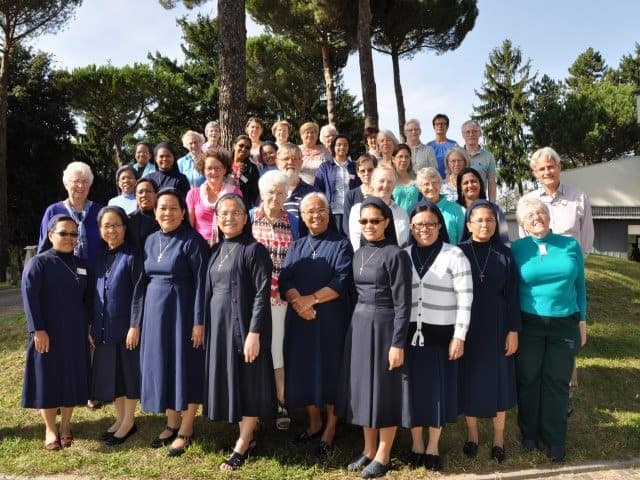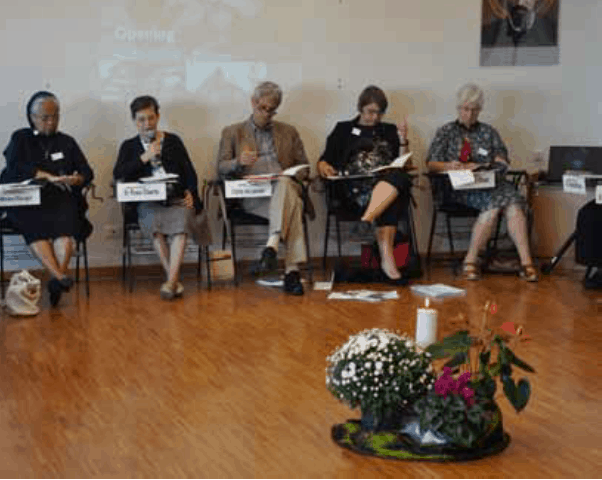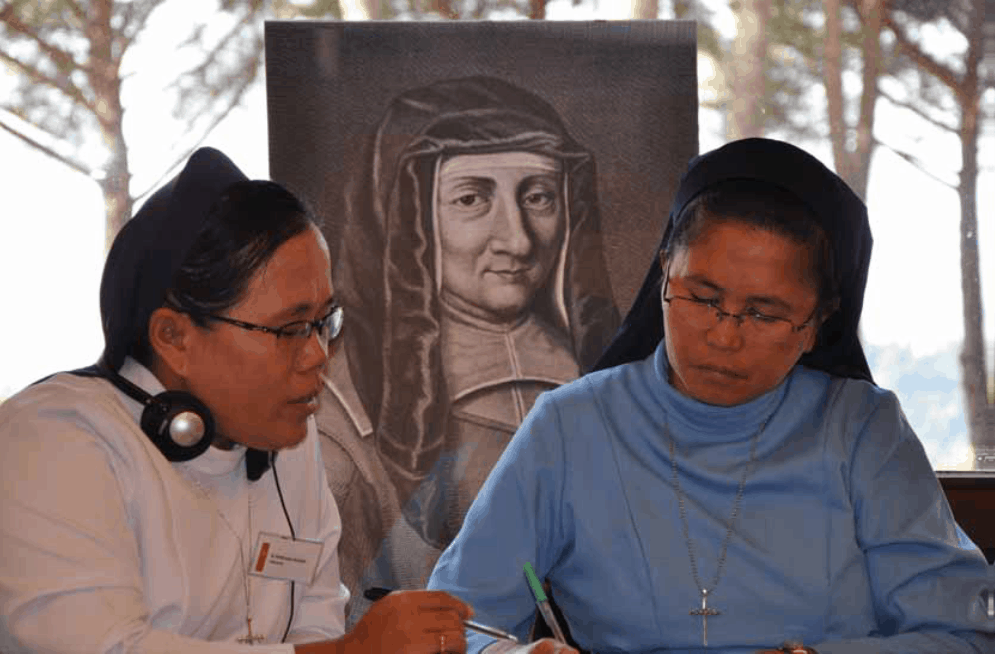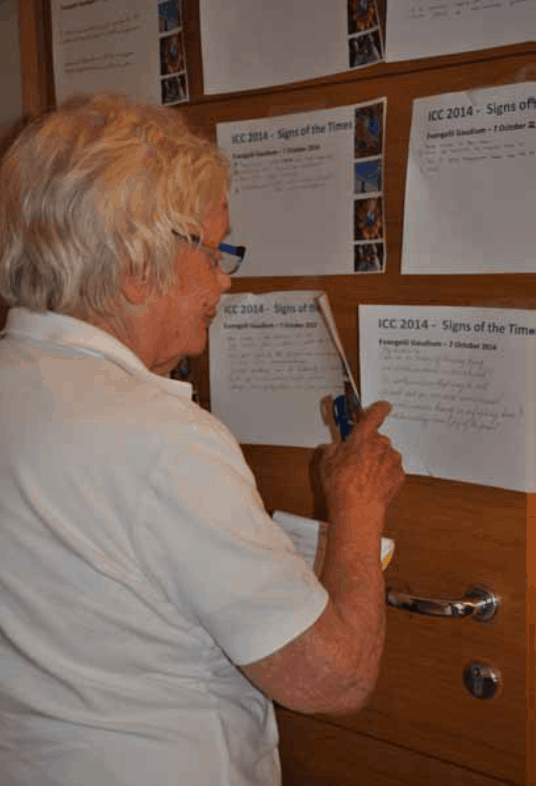Rethinking our religious ministry today
Sometimes things go in a surprising way. On a rainy Sunday evening I receive a phone call from the Sisters of Charity, with an invitation to join their conference in Rome. ‘We have a problem, Sister R. is ill. Would you like to come with us? Do you have time?’ A few days later I have my flight and in the late afternoon I meet the Sisters at the conference center in Nemi, in the Colli Albani, about 25 km from Rome. It is a group from 10 different countries, speaking four different languages. We will work together for two weeks, following the method of ‘prophetic dialogue’.
On the agenda five important topics, starting from the following question: It is good to reflect from time to time about what is happening in the world around us and how that influences our ministry and missionary work. If we put the signs of the time on our agenda, what does it mean for our ministry and daily life? We analyze five main challenges, partly following the Millennium Goals:
- combating poverty;
- working for a more sustainable world;
- defending human rights;
- understanding the media;
- finding our place in the Church.
Important challenges, at the heart of the mission of the Sisters. The facilitator has an easy job, because of the relevance of the questions, the dynamics of friendship and sisterhood and the nice Italian setting – and probably also thanks to the Presence of the Spirit. But still he has to write down every evening a summary of the lively discussions!
Prophetic dialogue
I quote from the conference report: “We are introduced to the concept of the prophetic dialogue, which plays an important role in the mission of the SVD (Society of the Divine Word), the congregation that offers us hospitality in Nemi. A prophetic dialogue is first of all a dialogue: to enter into conversation in the mission, to listen intently to people, not only preaching the Gospel, but also being open for what people share, for how people understand the Gospel, for the differences in context and perception. At the same time it is a prophetic dialogue because the discussion has a transforming power: it may name change, bring about a conversion, it may even have the power to cause a revolution. A prophetic dialogue raises the subject of injustice and oppression and addresses people that live on the periphery and in extreme poverty. A prophetic dialogue is the choice of not keeping silent in the face of situations of injustice, but to give a voice to the voiceless. A discussion about poverty always produces a sense of discomfort: what actions are we really taking to change the poverty around us? What are we able to do and what can we not do? How do we deal with our feelings of powerlessness? We often meet feelings of powerlessness in our apostolate, but at the same time we discover that we can go beyond. That is what provides the discussion about poverty with a prophetic dimension.”
I am deeply impressed by the openness of the Sisters, their radical living faith, their cordiality, their concrete action plans and their work to give shape to ‘sisterly tenderness’ and the ‘motherly love of God’. One of the exercises in the conference is writing our own version of Matthew 25 together. The resulting text reflects many of the things we share: our struggle and inspiration, our missionary work and our presence in the world. Here follows the present-day translation of this ancient text of the Gospel, with 31 lines from 31 Sisters:
I was sad; you cheered me up. I was in the dark; you gave me light. I was weak; you gave me courage. I was ignorant of my rights; you explained them to me. I lived on street corners; you gave me shelter. I was hungry; you gave me food from your own pantry. I was ignored; you made me visible. I was powerless; you gave me strength. I was a stranger; you smiled at me. I was a refugee; you welcomed me. I felt exploited; you set me free. I felt lonely; you talked to me. I was in pain; you embraced me. I was imprisoned; you came to visit me. You gave me books, magazines, and a kind word. I was imprisoned; you sent a letter via Amnesty International. I was imprisoned in my thoughts; you understood what I wanted to say. I lived in fear; you gave me strength. I was abused; you believed in me and fought for me. I was voiceless; you helped me to find my own words. I felt helpless; you gave me hope for the future. I was poor; you gave me the confidence to construct my life. I was defenseless; you gave me the courage to fight for my rights. I was handicapped; you helped me to develop myself. I was a victim of domestic abuse; you believed my story. I felt insecure; you gave me shelter. I lived by myself; you let me experience what I am part of. I was confused; you gave me a kind little push in the right direction. I was disappointed; you helped me belief what I want to represent. I saw the need in the church; my congregation allowed me to offer my help. I wanted to listen to distress; you gave me the strength to do so.
Conference Report Signs of the Time- Sisters of Charity SCMM in Rome, 2014





